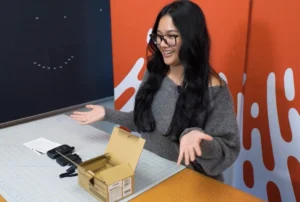Will Higher Education Invest in Entryway Devices as a Risk Mitigation Tool?
Since the beginning of the pandemic, every industry has had conversations about how to use technology to mitigate risk and return to full capacity. Those discussions remain imperative, as it appears that COVID-19 is likely to become an endemic. Should that track to be accurate, the virus will be something that stays around indefinitely.
In public places with high capacity, such as universities and K-12, the debate on keeping students and teachers safe continues. The challenges of the current situation of COVID-19 and its future could find help in the form of entryway devices.
How Entryway Devices Can Minimize Risk Exposure
Entryway devices deliver a variety of technology functions to support education. They bring to the settings scalable solutions that can take temperatures, detect masks and provide touchless questionnaires. All these components can help minimize risk exposure. Further, they can record interactions, scan IDs, provide visitor badges and convey messages. Each solution is customizable to the institution’s needs.
Industry Expert Offers Insights
The trend for schools to implement these could be gaining traction. Kevin Hogan, EdTech expert and host of EdTech Today, shared his thoughts on the possibilities. “Technology will be hugely important to higher ed and K-12 should the virus become an endemic.”
Hogan referenced that school boards face a lot of questions about how to keep everyone safe. “Devices like these could mitigate spikes,” he added.
Aurora Products Support Safer Schools
The right technology at the right time is often the best answer to problems. Aurora once again saw a gap that needed a bridge. The company once again reimagined what technology can do for certain spaces and industries. With the Entryway Experience solution, all the necessary technology to mitigate risk is in one turkey tablet platform. Learn more about this innovative technology and how education can leverage it.









